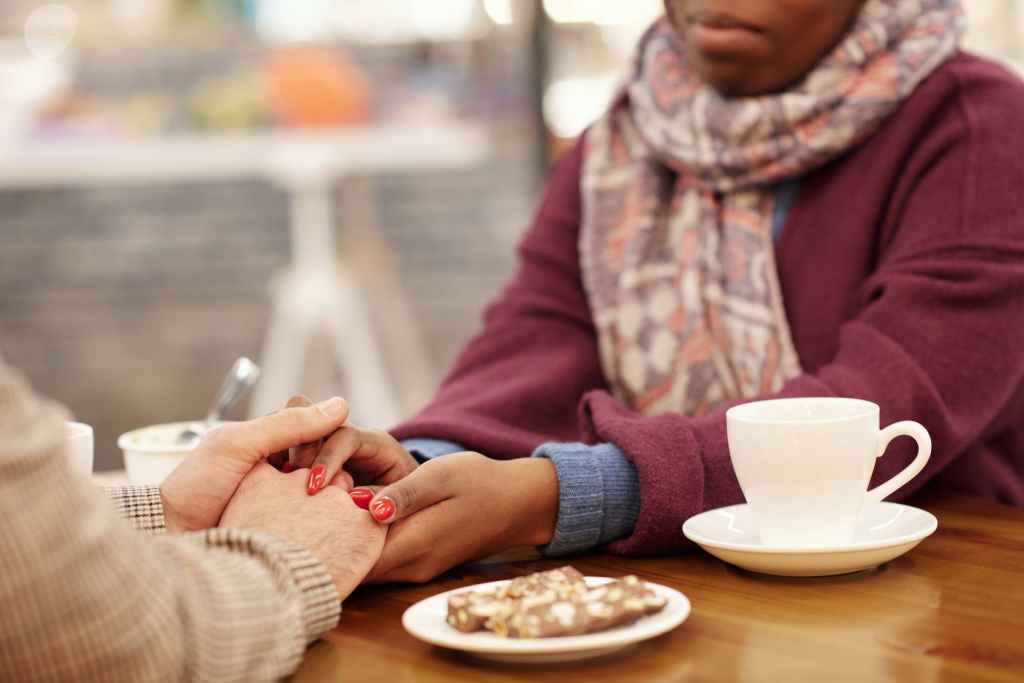Walking through our days, we may notice moments – sometimes little, sometimes big – that we feel swept over by emotion. Compelled to react, worry, or shut down. In my practice, I often ask folks, in this activated, emotional space, “How old does it feel?” The confused looks that I receive aren’t surprising. “I don’t know, I feel my age.”
I get it. But see, there are so many parts of us. Just like in the movie Inside Out, there are moments in time that stick. They call them “core memories” in the film. These moments pop back up frequently, anytime the current situation seems similar to what they went through, and we’re often unaware. In the movie, they show Goofball Island, Honesty Island, Friendship Island, etc. These islands aren’t intentionally utilized but subconsciously work. And when they were down, she numbed out to her life. But what if, as a kid, Riley’s needs weren’t consistently met? What if her islands were more like Can’t Trust Island, People Leave Island, and Tears Are Weak Island? How might that have changed how she related to herself, and the world?
Juliane Taylor Shore refers to this as our psychological floor. These islands are essentially our implicit memory system. Explicit memory is up top, and that helps you remember what you had for breakfast. It has a clear story you can pull up at will. Implicit memory does not. Implicit memory doesn’t have a story you can access at will. It speaks a different language. Its story is in images and physical sensations. Implicit memory is how you know how to stand up and walk across the room without first exploring what muscles to use. It’s also how you know you can’t trust others, that people always leave, or that you’ll never quite measure up. You know it without knowing you know it. Phew.
The good news, per Jules, is found in astronauts. Did you know that astronauts break a lot of things when they come back to Earth? See, you just know about gravity, right? You know it without realizing you know it. It just works in the background. But if you remove gravity for long periods, your brain forgets gravity. It takes a few weeks back on Earth to stop placing items mid-air, assuming they’ll stay there. So, if your implicit memory can forget gravity, what else can it let go of?
It’s important to know that you cannot erase what is already known in your brain. You know that already though, right? You can’t intentionally unknow something. Things fade if they’re perceived to be unimportant, but the fading is more of a process than the movie depicts. There is a layering of new experiences, integration of new information, and reorganization that is slow to develop over time. Plan on two years of consistent effort to get to a place of a new normal.
How, you might ask? Every time (or as often as you can remember) you have a difficult or sticky thought or emotion pop up, follow the steps below. The goal is to get to know them, feel them in your body (the connection between physical sensations and thoughts/emotions is incredibly important – remember how the implicit memory speaks in images and physical sensations?), and offer them compassion. The process described below was created from a combination of my training in psychotherapy, meditation, Buddhism, and endless personal work.
The process:
- Recognize the thoughts that are showing up. Especially the ones that are repetitive.
- Give yourself permission to slow down, pause, and explore.
- Where is it in your body? What does it feel like, what is its shape, texture, and color?
- Ask it: What are you wanting me to know? When is the first time I can remember doing this?
- Listen inside. Whatever comes is the right answer.
- Go back. Find that littler version (think of and speak to them in the 3rd person). Walk into the room, pause the scene, and sit down with the younger version. Offer them what you needed. Comforting words, cuddles, etc.
- Compassion. Feel it in your bones, offer it to your littler self.
- Let that little you know you can come back to visit anytime they need. Then tuck them into your heart and come back to your life today (noticing your five senses can help).
Side note on compassion: Think of compassion as expert empathy. Meaning, empathy is the hallway you walk through to get to compassion. Empathy says, “Oh, I know the pain of losing an animal.” Compassion says, “Your pain makes sense, and I wish with all my might that you can move through it.” Compassion has the edge of wishing the other person through their suffering (not out). This felt sense of action decreases the stuck feelings that can come up with empathy. Compassion has no limits, and it serves to help us feel connected and grounded. So next time you hear someone say “compassion fatigue,” remind them they’re actually referring to Empathy Fatigue!
Find yourself needing help with this process? Get In Touch with us today to set up a free consultation.
Take care of yourself out there,
D










